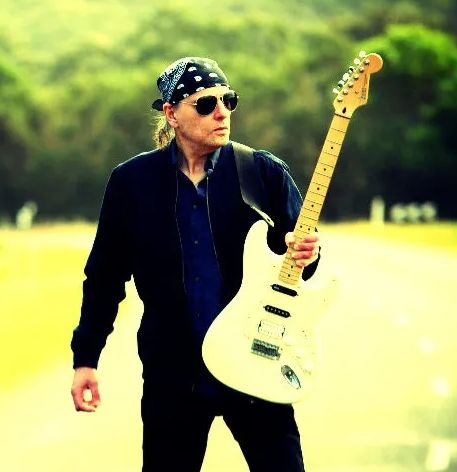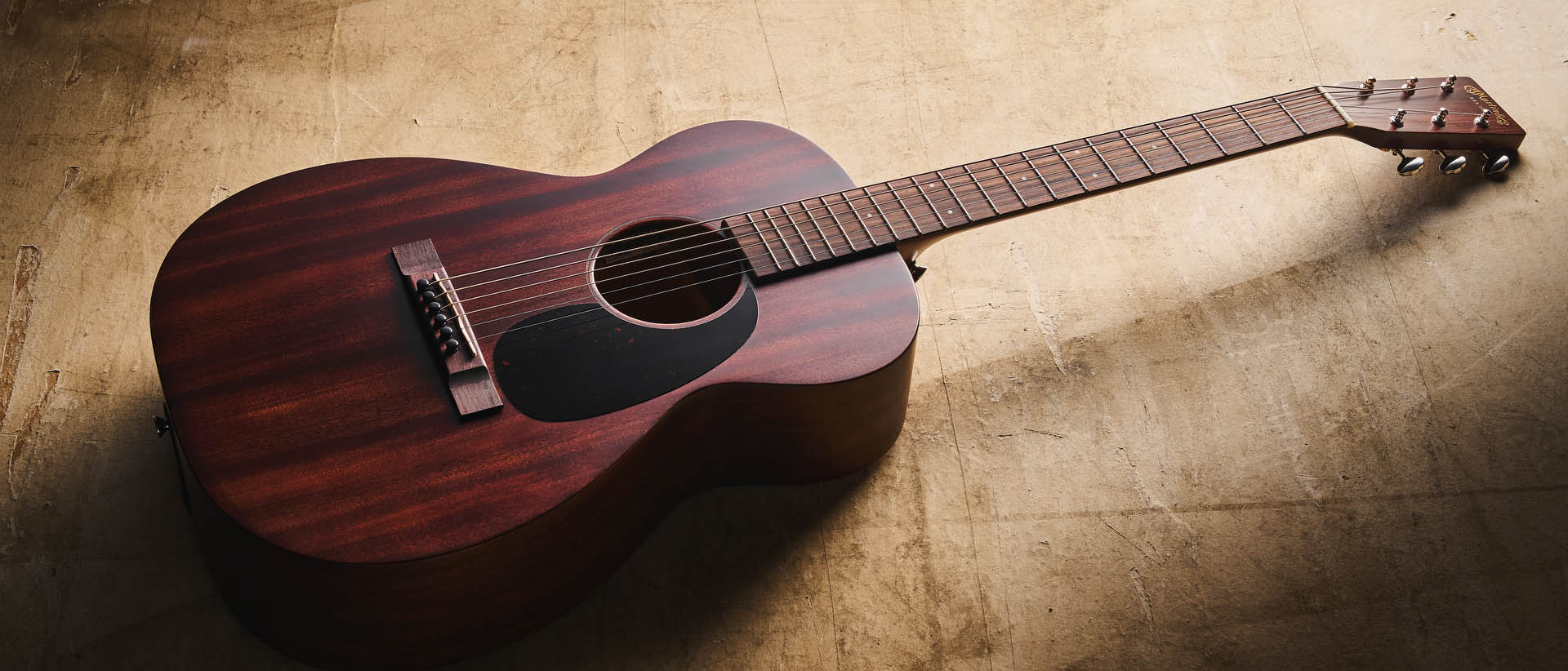“Butch Vig told us that when Nirvana were working on Nevermind, they were A–B-ing my guitar and trying to replicate that sound”: The Smithereens' Jim Babjak looks back
The power-pop guitar hero talks embarrassing moments onstage, what makes the perfect guitar solo and what it’s like to have influenced Kurt Cobain

When it comes time to list the most influential guitar players, the Smithereens’ co-founder and guitarist, Jim Babjak, often gets overlooked. Perhaps it's because of his melody-first ethos, a style that eschews flash for the tune that’s in his head.
But let’s not kid ourselves – Babjak has been a reference electric guitar tone for all kinds of bands, the most notable being Nirvana. Here, as Babjak joins GW for a quick chat, he talks about the gear in his life, the simple pleasures of sending the guitar straight into the amp, and the secret to the perfect solo.
What was your first guitar?
“I got my first guitar in 1969 when I was 12. It was a cheap Teisco that came with an amp made out of plastic. Both didn’t last very long. The strings were so far away from the neck, it was horrible. I probably would have learned to play better and quicker if I had a better guitar as it took me many years. A couple years later, I got a Gibson SG-200 – and that wasn’t so great either.”
Do you remember your first gig?
“It was in 1971; I was playing that SG-200 at an eighth-grade dance. I was a freshman at high school at that point. The band was Cold Steel or Back to Earth – I can’t recall which one because I was in two different bands. It was also the first time I sang in public, too. I got $150 for the gig, which was a lot of money back then, and I thought it was fantastic.”
Ever had an embarrassing moment on stage?
All the latest guitar news, interviews, lessons, reviews, deals and more, direct to your inbox!
“This is terrible to admit but on our first tour of Europe, we did a show in Iceland, where we had two sold out nights at the Opera House; our record had gone to No. 1 there, which I guess was because we were about to visit there as not too many bands tended to go to Iceland. I was in my Keith Moon phase and drinking a lot.
“And when I got there at the time, I found out they didn’t sell beer. It was only non-alcoholic beer, but they did sell hard alcohol. So I mixed Jack Daniels with beer. Horrible combination. Then we’re onstage playing and the audience were loving it, but I couldn’t wait for the set to end because I had to go to the bathroom!
“So, we’re doing Blood and Roses as our last song before the encore – and I didn’t make it. There was this nice puddle in front of my amp. Embarrassing for me and the band, but nobody in the audience knew, so this is the first time anybody is hearing about it!”
What’s your favorite piece of gear?
“I’ve always stuck to a 100-watt Marshall 800 series classic with the master volume. I hardly use any pedals as I love the pure sound of the guitar going through the Marshall. I can usually get what I want by just the volume control on my guitar, especially with the ’52 reissue Tele I bought in 1994.”
What’s your proudest guitar moment on a Smithereens track?
“There’s a song on our first album [Especially for You, 1986] called Time and Time Again. I was told it was going to have a fadeout [ending], and the three of us – bass, drums and guitar – were being recorded live. We’re playing away and the song is ending, and so whatever I played on that is whatever was going on in my head, just spur of the moment.
“I threw everything in it, [including] the kitchen sink. I even did a Dick Dale Pipeline lick. When we were done, we went into the control room and our producer Don Dixon said, ‘Wow, we’re keeping that; it’s not gonna be a fadeout now.’”
What advice would you give to young guitar players?
“Just play from the heart. I see a lot of kids going through this School of Rock stuff, learning how to be a rock star, but I don’t know – something just doesn’t come out right. They all sound the same. Not to put it down, but you need to get your own style.”
What makes a perfect guitar solo?
“For me it’s always been about melody. As much as I love Hendrix and all that – and I do throw in a bit of that stuff, too – my solos are just melodies I have in my head, since I never learned theory or scales and I play by ear. And they’re either counter melodies to the song or whatever fits with the song.”
Since I never learned theory or scales and I play by ear, my solos are just melodies I have in my head
How do you feel about Kurt Cobain counting the Smithereens as a major influence on Nirvana?
“I wish I had met him, but I never did get a chance. We worked with Butch Vig on a song once and he told us that when Nirvana was working on Nevermind, they were A–B-ing my guitar sound, and trying to replicate that sound. So, I’m truly honored.”
- The Smithereens' The Lost Album is out now via Tollie Records / Sunset Blvd. Records.
Joe Matera is an Australian guitarist and music journalist who has spent the past two decades interviewing a who's who of the rock and metal world and written for Guitar World, Total Guitar, Rolling Stone, Goldmine, Sound On Sound, Classic Rock, Metal Hammer and many others. He is also a recording and performing musician and solo artist who has toured Europe on a regular basis and released several well-received albums including instrumental guitar rock outings through various European labels. Roxy Music's Phil Manzanera has called him, "... a great guitarist who knows what an electric guitar should sound like and plays a fluid pleasing style of rock." He's the author of Backstage Pass: The Grit and the Glamour.



